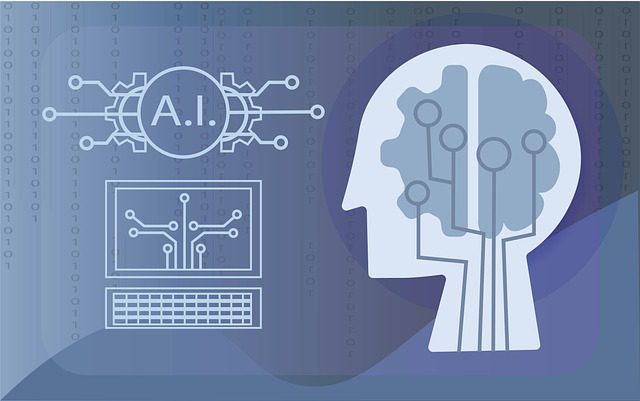AI in Digital Marketing

Summary
This blog post emphasizes the rising prominence of Artificial Intelligence (AI) in the field of digital marketing, offering insights into its various applications such as content generation, customer data analysis, and real-time personalization. It underscores AI's potential in enhancing marketing strategies by providing real-world examples from companies like Chase Bank and Starbucks, while also acknowledging the challenges involved in AI adoption such as obtaining organizational buy-in and the need for clear implementation strategies.
By Cameron Katoozi, Marketing Consultant at Heinz Marketing
We have seen a variety of technological advancements in the digital marketing world, from multi-touch channels to increased consumer data privacy. These developments help marketers become more effective in their strategies to reach customers in ways they’ve never done before. One of the top trends that are taking the digital marketing world by storm is Artificial Intelligence (AI). Many of you may be asking “What is AI?”, “Can it benefit my team?”, “is it easy to adopt?”. In this article, we will answer these questions and more to clear the air on the basics of AI and why it should be implemented in every organization moving forward.
What is AI in Marketing?
Where have you heard of AI before? Your first thought of AI might be those uncanny robots you see in villainous sci-fi movies with evil intentions – but that can’t be further from the truth. Fiction aside, AI is a powerful tool that can streamline processes in all facets of your marketing organization. With the use of machine learning and supplied data analytics, AI automates nuanced tasks that would otherwise require human intelligence in order to save time, money, and resources that can be allocated to other areas of your organization. This leverage in technology can help you make insight-driven decisions to simplify your customer interactions and make them more effective. Common use cases for AI include:
- Content generation
- Real-time personalization
- Customer data analysis
- Digital advertising (PPC, campaigns, etc.)
- Website chatbots
Use Cases of AI
AI builds more effective marketing strategies, improves customer lifecycles, and simplifies the way you reach, engage, and convert leads. According to a study by Salesforce, only 29% of marketing leaders used AI in 2018, compared to 84% in 2020. That’s a 186% YoY growth. Seeing the growth is encouraging, but how are they implementing AI?
Chase Bank
One example involves Persado, an AI content creation company, partnering with Chase Bank. In an effort to create more personalized copywriting, Chase sought the help of Persado to do just that. According to Persado, Chase saw a 450% increase in click-through rates on their ads compared to the 50-200% increase they normally saw with human-generated copywriting. AI technology was able to rewrite past copy and headlines to resonate with Chase’s specific segment of customers more effectively than their in-house development.
Starbucks
Besides copywriting, companies can save a vast amount of time and resources with the use of predictive analytics. Starbucks is a great example of a company using predictive analytics to personalize recommendations for loyalty customers. When a Starbucks mobile app or loyalty card is used, every detail of the purchase is recorded. This includes the type of drink, location, and time of day you completed the transaction. With this data, Starbucks AI uses predictive analytics to process and personalize its marketing messaging to the specific customer. Following customer spending patterns, the AI can display new items and drinks to users and have them try items they wouldn’t otherwise. This opens the door to creating incentives for desired behaviors.
Starbucks is also benefiting from its AI-based email programs. Previously, employees would spend hours creating varied hand-crafted email campaigns, segmenting customers into generalized groups, resulting in minimal click-through rates and engagement. Now with real-time personalization, they can automatically create emails based on customer behaviors and anticipated behaviors. This level of personalization has increased their email campaign engagement, as customers are now exposed to new items and recommendations through personalized messaging that will truly resonate with them instead of a generalized campaign from before.
AI Challenges
AI is still a relatively new subject, with minimal awareness of integration and how to use it. This presents a challenge to organizations that want to modernize their digital approach and are curious about adoption. One of the first issues you may face is getting organizational buy-in. It may be obvious to specialists and managers how valuable AI can be to customers, but that same mindset does not always translate up the hierarchal ladder. Marketing teams must be prepared to demonstrate the value of an AI investment to key stakeholders and other decision-makers to prove that AI can have a positive ROI and overall improvement.
Getting buy-in from the whole organization is not the only challenge. Marketing needs a plan of attack when it comes to onboarding and deployment. Leaders must have a crystal-clear understanding of the solution they plan to implement, then pass that information to their team. This may require additional training for specialists upfront but will be worth it to ensure a steady transition.
Wrapping it up
Of course, AI isn’t a one-size-fits-all approach. The best practice is to start small with a single campaign or A/B testing to see how AI implementation will affect your current digital marketing approach and scale accordingly. Once you’ve analyzed your performance, you can assess whether widescale AI implementation is right for you. With all these digital marketing teams investing in AI, their innovations will present better use cases and more effective methods to reduce time-consuming daily tasks and truly present AI as the future of digital marketing.





